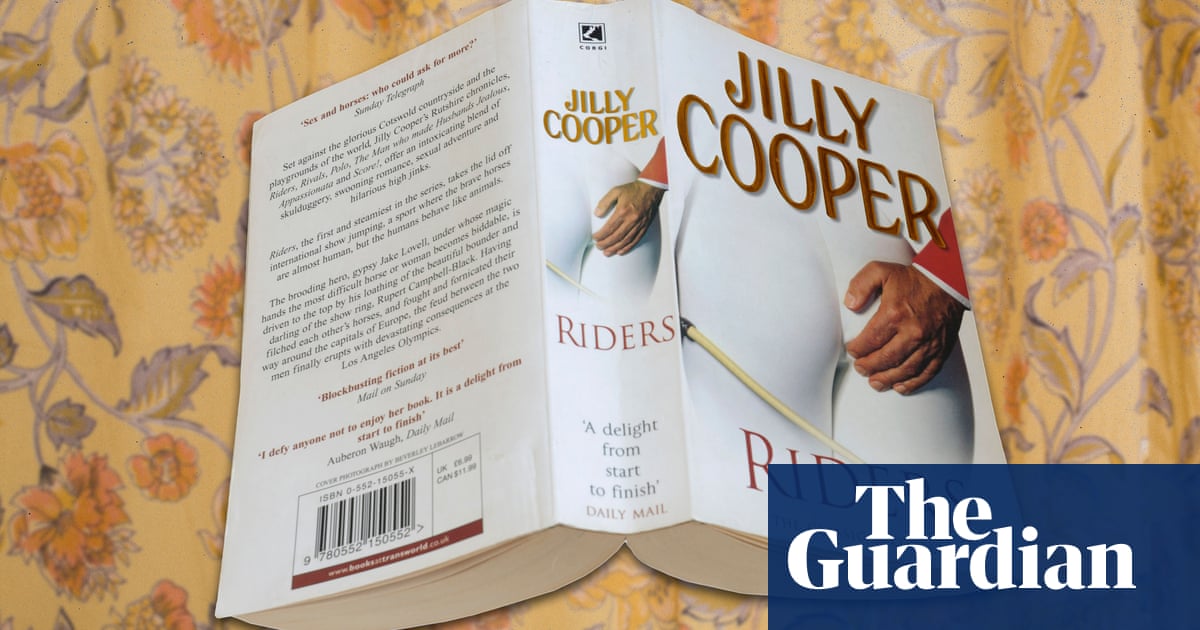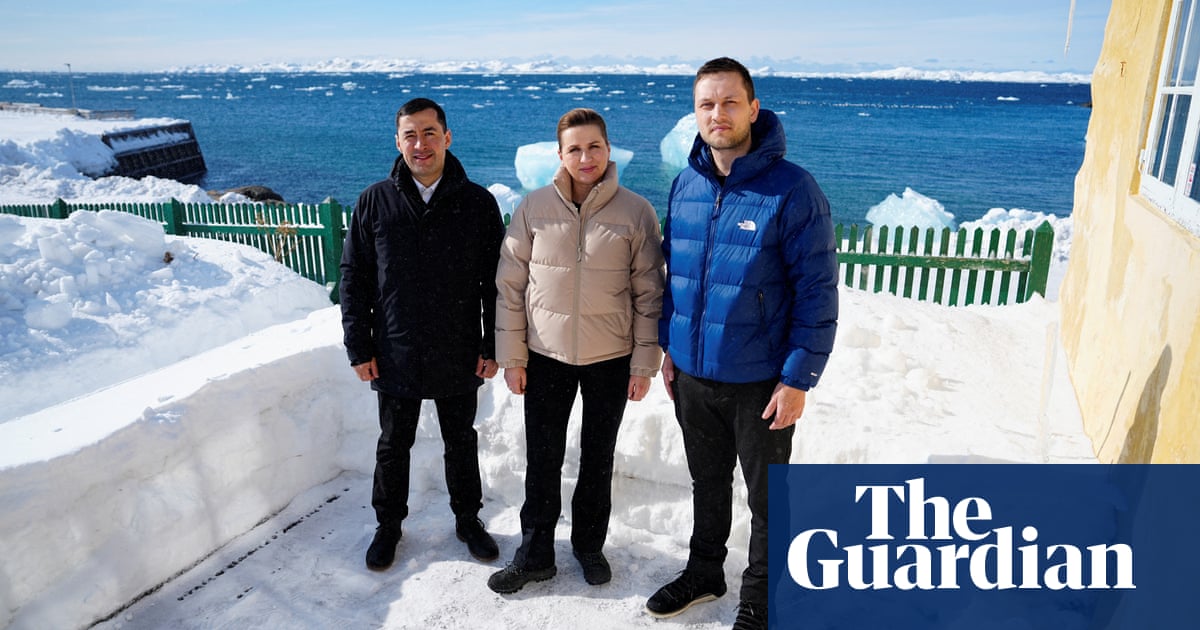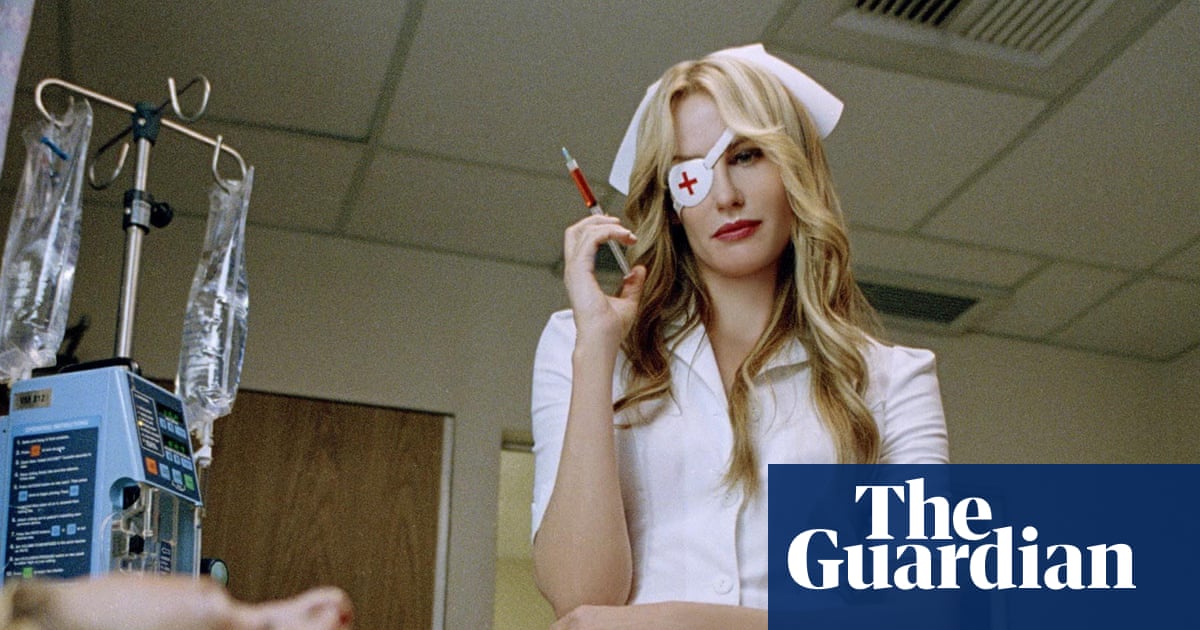Omar Elerian clearly has an aptitude, and appetite, for European absurdism. The director and translator staged an impeccable revival of Eugène Ionesco’s The Chairs three years ago at the Almeida, complete with the masterstroke casting of husband-and-wife duo Kathryn Hunter and the late Marcello Magni.
Now comes his version of Ionesco’s magnum opus about the dangers of conformity. This might or might not be set in Ionesco’s provincial French town in which Berenger (Ṣọpẹ́ Dìrísù) becomes the hapless witness of a malaise in which humans are turning into rhinoceroses. It is dismally timely in a world of rising rightwing authoritarianism, with its critique of passivity in the face of barbarism and herd-like conformity.
But where The Chairs nailed Ionesco’s balance between meta-comedy and existentialist dread, this production is not as clever – or rather, it is too clever, teeming with good ideas, but slack in pace and tone.
Its look suggests a laboratory experiment, perhaps sending up the logician of the play whose syllogistic reasoning is perversely employed to impede truth. Most of the cast emerge as a lineup of scientists, one of whom calls himself the “Provocateur” (Paul Hunter) and narrates stage instructions archly.

The production encapsulates the spirit of Ionesco’s avant-gardism: anti-theatrical, always aware of its construction, and enlisting audience participation from the off, but the mechanics of the storytelling distract from the story itself.
Our world is tucked into Ionesco’s (with mentions of Gary Lineker, fomo and fake news) but the clinical white set designed by Ana Inés Jabares-Pita allows the audience to project meaning. The danger is that this results in vagueness or abstraction and the play becomes a showcase of form alone.
The drama plays out like improv for a while, with actors sometimes raising eyebrows or performing narrated scenarios wryly. Berenger is the only straight man, bewildered but also emphatically playing a part, like the others. Dìrísù deliberately stays at a remove, a blank of a character, but the distancing is so great that you never feel the pervading menace and fear in this town.
The audience becomes the animal herd outside; some are given kazoos and instructed to blow every time the rhinoceroses trumpet their growing presence. It is a pantomime sound, absurdist yet not unsettling.

Still, there are delightful moments of silliness and some lovely clowning, with Hayley Carmichael and Hunter standing out in a cast that juggles multiple roles. Foley sounds are created along the sides of the stage to the miming of invisible props and furniture, which extend the idea of audience participation to actively imagining a scene. A superb touch comes with a cafe table built out of a tray and tablecloth held by character. An over-active photocopier in the newspaper office scene is superbly conjured with light, sound and mime.
But the play is too stretched and the slowness undercuts the sense of stampeding alarm. The transformation of Berenger’s friend, Jean (Joshua McGuire, robust), into a rhinoceros brings high-pitched hysteria and comedy yet without ruffling enough feathers. The unravelling of Berenger’s office crush, Daisy (Anoushka Lucas), holds greater weight. But the switch to dread never comes, despite the projected close-ups and ominous music.
It is a production that has all of Elerian’s signature intelligence and playful imagination but is ultimately a reminder of how tricky a play this is, and how form can so easily eclipse content.
-
At the Almeida, London, until 26 April

 22 hours ago
9
22 hours ago
9













































